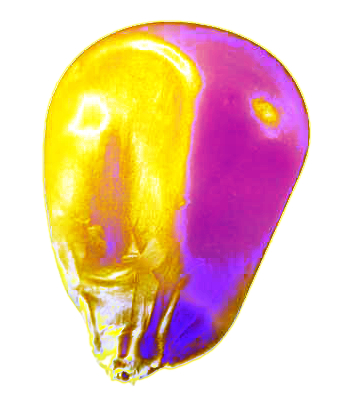Farm funds to find high-tech paddocks
 A new Federal Government initiative will bring some high-tech tools to one of the world’s oldest activities.
A new Federal Government initiative will bring some high-tech tools to one of the world’s oldest activities.
Prime Minister Malcolm Turnbull launched a new innovation hub for agricultural technologies over the weekend called 'Sprout'.
Sprout will be run by the National Farmers Federation (NFF) to encourage new technology and the use of big data to cut farm production costs and boost output.
The NFF says it has tens of millions of dollars ready to pour into new projects, which it hopes will add up to $6 billion to farm income over the next four years.
“Digital agriculture is the next wave of productivity,” said NFF chief executive Simon Talbot.
“We need pathways to identify the best ideas and get them to market sooner in order to remain at the cutting edge.”
Mr Talbot said the ‘tech-incubator’ would find, foster and field new ideas in food and agribusiness, linking innovative operators with like-minded Australian companies.
The NFF says it has already been working with an expert panel at accountancy and financial advice firm Crowe Horwath to assess projects and find capital partners.
“We're talking about tens of millions of dollars available,” Mr Talbot said.
The hub is expected to use a range of funding models, including crowd-funding, the early sale of shares in emerging incubator-tested companies, or through low-interest loans.
“We've got enough capital to prime the pump and get the first 10 projects through, and then it's a virtuous cycle.”
Sprout’s first round of applications will begin early next year.
“One thing I am determined to solve is the frustration of young agribusiness professionals having to leave Australia to go to the US, Israel or Europe to test or trial new ideas,” Mr Talbot said.
“We need to keep entrepreneurs in Australia and we need 10 times the entrepreneurs we have in agriculture.”
The NFF has also unveiled its new Digital Agriculture Service, which will be run in partnership with business and technology management consultancy Accenture.
It aims to use the incredible amounts of data that it collected by and about agricultural businesses.
The data will be collated, computed, correlated and consolidated to give farmers new tools to improve their operations.
In one example, the NFF said the scheme could link information about soil moisture, pasture growth, cattle genetics and herd rotation so a farmer could sell animals at the optimum time, and earn an extra $80 a head.
“Currently it's too hard for farmers to join all the dots,” Accenture managing director Anthony Willmott said.
“By creating a service by farmers, for farmers, the NFF and Accenture will avoid the scenario playing out overseas where farmers are locked into a particular service provider,” Mr Talbot said.
“The NFF will ensure farmers' data is securely held for their benefit, rather than the benefit of a third party.”
But Mr Talbot has been forced to concede that the NFF’s high-tech initiatives require good internet connectivity — which is severely lacking in regional Australia.
“That changes in March to April next year,” he said.
“We've been working with the NBN to make sure satellites are effective in delivering a digital solution to farmers.
“We are also working with Vodafone on on-farm solutions and on narrow-band networks to have on-farm Wi-Fi connectivity up to a 15km radius.
“We need to be sure we are ready to educate, provide data and analytical skills and the systems and tools needed to become better farmers.
“We are adopting a similar model to Israeli agriculture which had a 15 per cent productivity uplift in four years.
“If we achieve that in Australia we are talking $5 to $6 billion of potential new income to Australian farmers.”







 Print
Print